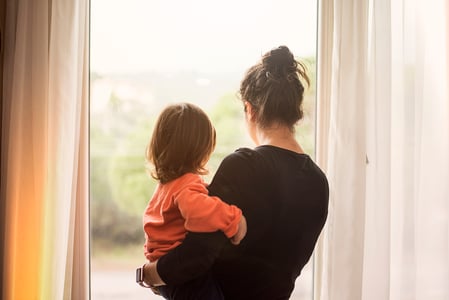
Three years ago I watched as white men and women, dressed in white polo shirts and carrying guns, walked down my street in downtown Charlottesville, Virginia. Later that day, Heather Heyer, a young woman lending her voice to those protesting the racist and hateful actions of those gathering in our town, was needlessly killed.
At the time I shared these thoughts on Facebook:
"It is hard to know what to say to add to the eloquent words of many reflecting on the past few days in my beloved home. But here is what has been in my heart and mind.
At the core of the solution is developing true and real relationships among people of all races, ethnicities, religions, and backgrounds. Until we really know another, it's easy to cast them off as an "other".
The relationships we form early in life are foundational to who we become as adults. Every morning young children across this country walk into classrooms with people who are very different from themselves. With the right support, the interactions that they have in those classrooms can help them understand that we are all one people, that compassion for others makes us all better, and that we can get through even the most challenging of times, together.
I don't pretend that it is easy. But I thank each and every educator around the country who sees it as his or her responsibility to help children truly know and understand each other. It is what gives me hope, even in the darkest times. And it is something that I, personally, will re-invest myself in to make sure that I am doing my part.
Life is too short for so much hate."
Reading that today is hard, knowing how little progress we have made locally and nationally to become a more anti-racist society. The needless killings have continued and we see daily examples of the ways in which racism impacts even our youngest learners in school settings.
It's also hard because as I read the words, “every morning young children across this country walk into classrooms” I was hit with the stark reality of how many children aren’t doing that today, but rather sitting at home watching their teacher on a screen. In March, we knew this would be a short term reality and that older children may be faced with these circumstances for a longer timeframe. Today, I know I am not alone in my surprise and dismay at how many 3 and 4-year-olds are unable to be with their teachers in person as this new school year begins.
But, there is also hope and inspiration. I am awed by the innovation and dedication of educators across this country who are determined to ensure they are providing the very best experiences for their students even in the most challenging situations.
The best educators are a diverse group but they share at least one core belief - they know that the relationships they have with students are the very core and foundation of learning. And, they know that relationships matter more now than ever before.
They are finding new and innovative ways of connecting with their students - from placing photos of themselves on their shirts so their young children know what they look like behind the mask to going out of their way to make personal calls to each and every student before the school year begins. They are taking time to reflect on the ways in which they can become more anti-racist in their beliefs and actions each day - knowing that not all students have equal access to relationships in schools.
Moving Forward, with Much More to Do
At Teachstone we work every day toward our vision of ensuring everyone has access to life-changing teaching. There is much work to be done but I am excited to see the ways in which we’ve partnered with the field in recent months to help support educators, children and families during this time. We are making sure our partners have the tools and resources they need to support educators right now as they work in COVID-19 impacted classrooms and teach virtually. We are preparing educators to support children return to the classroom, virtual or real, who are experiencing new levels of trauma. And we are bringing attention to the specific anti-racist practices that can help us create more equitable classroom experiences for our students.
Amongst all of the pain, sadness and stress of this current moment I also feel a renewed determination that things will look different this time next year. And, that when I see my Facebook post from August 12, 2017 appear in my feed I will have even more examples of progress toward a future when every child can walk (back) into the classroom and be greeted by a teacher who knows and cares about them and who is prepared to support their learning and development in the new and better world that lies ahead of us all.
